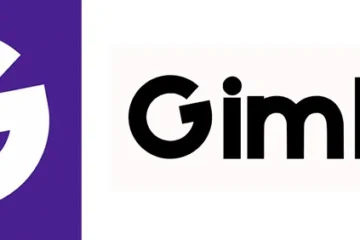In every Muslim household, it is imperative to instil a love for the Quran in children. This noble pursuit starts with mastering the Noorani Qaida, a foundational step that provides young minds with the essential tools to navigate the exquisite world of the Quran. Children can establish a profound and enduring bond with the Holy Quran by learning this indispensable first book, paving the way for a lifelong connection.
What is Noorani Qaida?
The Noorani Qaida is a fundamental textbook known as the “Noorani Primer” or “Qaida Noorania.” It is specifically designed to introduce children to the Arabic alphabet and the basic rules of Quranic recitation (Tajweed). Noorani Qaida is ideal for young students who have yet to gain prior knowledge of Arabic since it breaks down the learning process into manageable steps.
Why is Noorani Qaida Important for Kids?
Learning Noorani Qaida offers a multitude of benefits for children, including:
- Building a Strong Foundation: By mastering the Arabic alphabet and basic Tajweed rules, children gain a solid foundation for future Quranic learning. This initial success fosters confidence and motivation to continue their journey.
- Developing Proper Pronunciation: The Qaida emphasizes accurate pronunciation of letters, which is essential for correctly understanding and reciting the Quran.
- Enhancing Memory Skills: Memorizing the alphabet and Tajweed rules strengthens memory skills, valuable assets for overall learning.
- Sparkling an Early Interest in Islam: Exposure to the Quran at a young age fosters a love for Islam and its teachings, planting the seeds of faith for a lifetime.
- Building Discipline and Focus: The focused learning required for mastering the Qaida instills valuable habits of discipline and concentration in children.
What Does Learning Noorani Qaida Entail?
The Noorani Qaida typically covers the following key areas:
- The Arabic Alphabet: Children learn to identify and correctly pronounce all 28 Arabic letters, including their different forms at the beginning, middle, and end of words.
- Tajweed Basics: The Qaida introduces essential Tajweed rules, such as proper Makhārij (points of articulation), Madd (lengthening of vowels), and Ghunnah (nasalization).
- Joining Letters: Children learn how different Arabic letters connect when forming words, creating a smooth flow during recitation.
- Basic Quranic Recitation: Having grasped the alphabet and foundational Tajweed rules, children begin to recite simple Quranic verses, gradually building confidence in their reading ability.
Making Noorani Qaida Learning Fun and Engaging
Learning a new language and religious text can feel daunting for young children. Here are some tips to make the Noorani Qaida learning experience fun and engaging:
- Choose the Right Teacher: A qualified, patient teacher who understands child psychology can make a difference. Seek a teacher with experience in teaching children and an upbeat teaching style.
- Create a Playful Learning Environment: Incorporate games, songs, and colorful visuals to keep children engaged and motivated. Utilize flashcard games to help them memorize letter shapes and sounds.
- Make Learning Interactive: Encourage active participation through activities like writing practice, reciting after the teacher, and identifying letters in short words.
- Positive Reinforcement: Celebrate milestones and acknowledge progress with praise and rewards. Creating a positive association with learning motivates children to continue their studies.
- Keep it Short and Sweet: Young children have limited attention spans. Shorter learning sessions with frequent breaks are more effective than long, drawn-out sessions.
- Lead by Example: Parents and family members play a crucial role in encouraging children to learn the Quran. Show enthusiasm for Islamic knowledge and demonstrate the importance of reading the Quran daily.
Conclusion
Learning the Noorani Qaida is just the first step on a beautiful journey to learn Quran with Tajweed. By establishing a solid foundation and cultivating a passion for learning, parents and teachers can provide children with the necessary tools to connect with the Quran throughout their lives. As children advance and delve deeper into the wisdom of the Quran, they will discover not only a book of words, but also a source of guidance, comfort, and inspiration.



